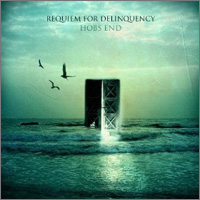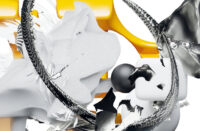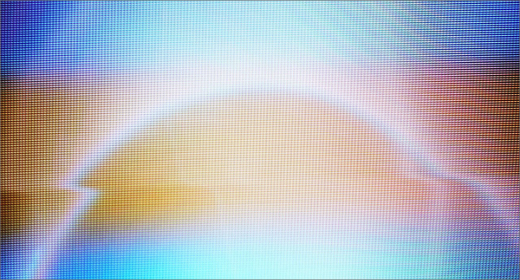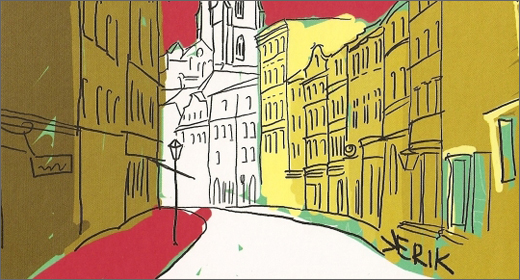
(October 2009) Requiem for Delinquency consists of Faron Chance Morrison – a classically
trained musician. The CD artwork and website design go hand in hand, producing
visual imagery that’s set to intrigue – infact it’s quite stunning. As an album
however, Hobs End comes across as a little introvert – a project that perhaps
became deprived of extensive influence during its development.
This debut release attempts to fuse many surreal recollections, and to a degree
Hobs End succeeds in achieving some level of fascination, but it lacks the
essential support network that would enable this to flourish as a finished
product. The result is an album of contradiction – it tries desperately to be
futuristic but at the same time could easily have hailed from the early
nineties, speaking of which, the Neil Tennant like vocals show lack of
expression, although they do appear soothing.
The many voiceover effects which appear on most tracks, are to this album, what
blackened rainclouds are to a promising summers day, resulting in so many great
melodies and atmospherics to simply be ruined with such a level of repetition.
Despite an element of emptiness, some aspects do grab, if only briefly. Most
tracks contain dark backdrops; opener “The Work of Science” spreads its promise
of close encounters with deep and dark vintage styled synths while “Picture
Viewer” follows with a similar theme, adding to it an upbeat personality. A
touch of diversity is evident with “Before Ourselves” – there’s an Eastern
tinged opening, before the track slips into subdued vocals, incorporating a re-
route to some poignant sounding strings, sitting alongside an underlying ‘vinyl’
effect. “Cemetery” clutches in a dark way while “It Really Mattered” could
easily be a single and demonstrates some bright piano playing.
“The River” is among the strongest tracks. Overall its manner is mellow and
intellectual with a weeping acoustic piano sound that’s both stunning and lends
the most memorable melody, igniting the track in a way that has not been
evidenced previously. There’s even a polished variation during its mid-section.
In part, the acoustic piano appearances and melodies raise the bar
significantly, but all too often such workings are spread thinly over vast
ground – mixing it up with the one dimensional and monotonous.
Hobs End is an extra terrestrial enquiry into the darker side of human nature,
overlooked by flashes of common circumstance. It’s a calm science fiction
styled sound-scape, crying out to break free from its present confines.
Hobs End is out now on Murdock Syndicate. [Listen / Purchase]
















![Pole :: Tempus Remixes (Mute) — [concise]](https://igloomag.com/wp/wp-content/uploads/2025/04/pole-tempus-remixes_feat-75x75.jpg)






![Hasbeen :: Bunker Symphonies II (Clean Error) — [concise]](https://igloomag.com/wp/wp-content/uploads/2025/04/hasbeen-bunker-symphonies-ii_feat-75x75.jpg)

